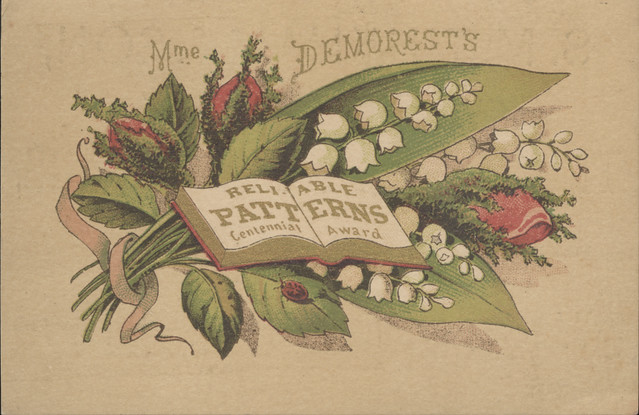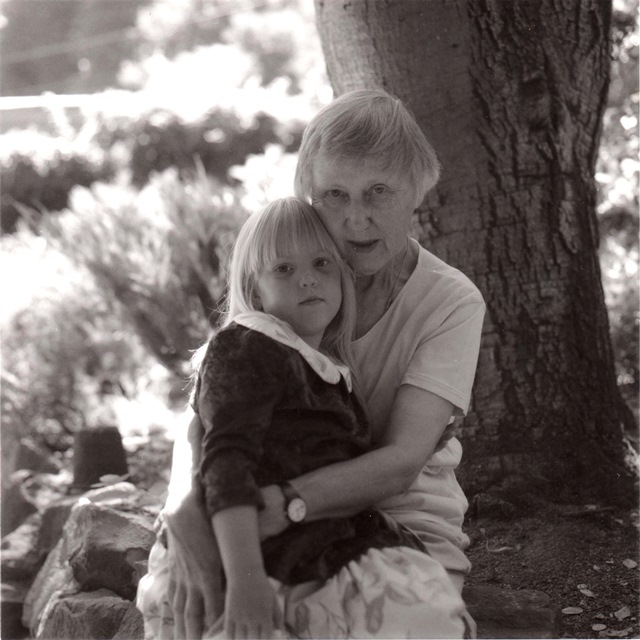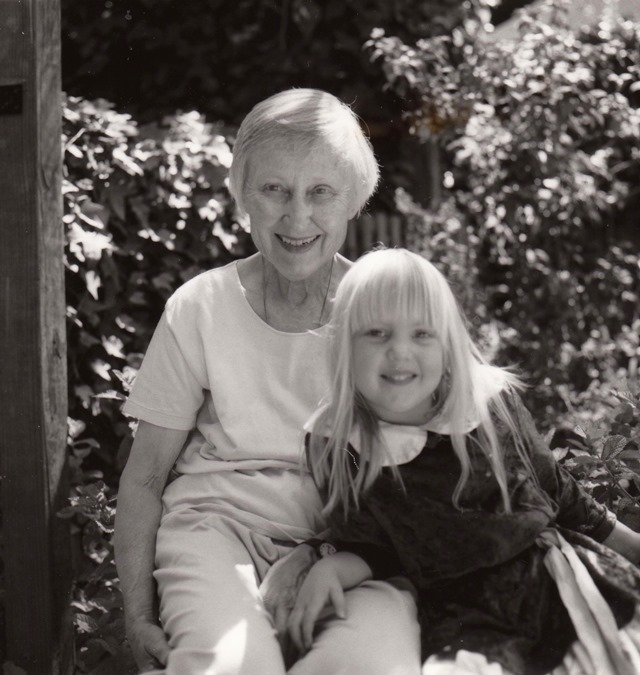[
Click here to read the first installment.]
Baptized a Presbyterian in my father's church as an infant, I fell into the category of those obligated to believe in predestination. After his early death, our mother took my brothers and myself to the Baptist Church, no more than a block from our home, the faith that she had grown up in. I like to think that proximity was not the deciding factor but sympathize with the logistical reality that having to walk halfway across town to the Presbyterian Church in pouring rain and tight shoes might have been a consideration more compelling than doctrine. By the time I was truly a Baptist, having declared myself a believer and been totally immersed, I was ready to defend my beliefs in heated discussions with teen-age peers.
None of us was particularly philosophical by nature, but the four churches (all Protestant) determined most of the small town social life. Not until the end of WWII was there an infusion of new blood and diverse religions. When two local servicemen brought home American-born women they met while training in Kansas, they were forever after introduced as "war brides."
Despite the fact that all of us were hostage to our parents' choices, we wanted to believe that we were exercising free will. The Baptist Church rejected infant baptism, insisting that one must be of the age of understanding to be saved and accepted into the church.
I was confused as to where that left me. Had baptism washed away my previous obligation to believe in predestination along with my sins? What was predestination anyway? I wanted to ask if free will and free love had anything to do with one another, but intuited that I had better stick with predestination.
To answer my question my mother recalled the afternoon a young newly-married couple came to call on her and how forever after they were her great friends. Since then I have understood in my bones what predestination means.
It was a few weeks after her inquiry to Mr. Austin as to the failed delivery of her wedding gift that we were digging in the front yard flower bed, dressed in gardening clothes, when she looked up to see John Frank Hubbard and his bride Rosalee Lee walking happily along our path as if to pay a thank-you call.
"I wonder why they're coming to see me?" Mother asked herself, brushing at her skirt and stamping her shoes. It was a warm day and neither of us wore stockings. "I didn't send them a present. I hardly know John Frank, though he's sweet as can be. Run inside and make up some lemonade."
John Frank had moved to our town to join a local business establishment and right away had joined our church. In a few months he took time off and returned a married man with his bride, a young woman from a different state, albeit one which lay only seventeen miles south. John Frank doubtless had advertised our church and town to Rosalee Lee as being cordial to such as herself, born and bred not only in another county but in the state of South Carolina where crossing the line made one eligible to buy liquor legally and to get married with no waiting period. She probably needed those assurances, not quite sure of a state whose Latin motto, Esse Quam Videri, loosely translates, "To be rather than to seem."
My mother certainly was pleased to see John Frank and Rosalee Lee, but bemused as to why John Frank had chosen her to meet his bride. So far as she had heard, the young couple had not called on other members of the congregation.
Still wondering how she came to be singled out, she welcomed and brought them into the parlor where I stood barefoot but ready, holding a tray with lemonade. I had thrown off my gardening shoes as I raced through the back porch to the kitchen.
"Make yourself at home," Mother said. "I'll just wash my hands." In a minute she was back with her hair combed, her expression composed, and her intelligence ready to make the most of this unexpected social opportunity.
As soon as we all agreed that there is nothing as cooling as lemonade on a hot day, Rosalee Lee smiled at my mother and said, "Your wedding gift is very much appreciated. We love the creamer and sugar."
John Frank beamed on his bride. "It means so much to both of us. I promised Rosalee Lee that our church members would welcome her. Yours was the very first gift we received when we got back from our honeymoon."
"I do hope the pattern will go with your other things," my mother said quickly and invited Rosalee Lee to join the women's missionary society and encouraged her to consider singing in the adult choir. Rosalee Lee thanked my mother profusely as if her sponsorship was exactly what she needed to feel truly accepted.
As I passed the lemonade in my bare feet and sat on the piano bench listening to my mother's natural sociability putting everyone at ease, I fell hopelessly in love with John Frank, so earnest and handsome, like the unknown suitor who would come from some faraway place to court me and take me away to an unknown land. In a non-technical sense, it was a kind of free love.
The very next day my mother called Mr. Tom Austin and with tact and well-chosen words informed him of his mistake, promising she would never breathe a word to anybody about the whole episode. Needless to say, he forthwith sent his delivery truck with a duplicate of her intended gift to the intended bride; and in a few days she called to schedule a second viewing.
My mother never claimed that Mr. Tom Austin apologized or even said he was sorry, but shook her head in disbelief when she put down the phone. "Poor man. He's spoiling for a fight, but I'm not looking for a black eye."
In a community where a secret unshared is no secret at all, she reaped the bounty of what she called, Mr. Austin's "inattention to detail" and thoughtfully [forewent] the pleasures of telling.
John Frank and Rosalee Lee always considered Mother a very special, welcoming friend; and she in her turn always felt a special, predestined affection for them both.
[Written by Virginia McKinnon Mann; date unknown.]




